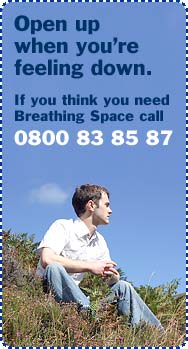Cognitive Behavioural Therapy (CBT)

Can you tell me about CBT?
What is it?
- CBT is a form of counselling in which the Therapist assists the client in developing skills to recognise and challenge distorted thinking that can lead to depression.
- Cognitive Behavioural Therapists may use techniques e.g. getting the depressed person to do more things that give them pleasure, helping them to solve problems in their life and learning better social skills.
How does it work?
- People who are depressed have distorted thinking patterns. They see themselves and their situations more negatively than others see it. These thinking patterns make their depressed mood worse
- In CBT, distorted thinking is challenged by the therapist who teaches the person to overcome their negative thinking patterns in everyday life.
How effective is it?
- There are studies showing that people with mild or moderate depression recover more quickly if they are treated with CBT
- CBT is as effective as antidepressant drugs
- Unlike antidepressant drugs, CBT works as well for adolescents as adults
- An advantage of CBT is that it helps people learn skills that may prevent them from becoming depressed in the future
- CBT is not suitable for severely depressed people as they are too depressed to learn new thinking skills
- However, once they have begun to recover with medical treatment CBT may be helpful.
Can you tell me about medicines used for depression or anxiety?
Antidepressants and anti-anxiety drugs have come into wide use as adjuncts to talk therapy – or replacements for it. Drugs usually work faster and cost less than therapy, so sometimes doctors and patients favour them.
Antidepressants – Those prescribed today are usually the SSRIs (Selective Serotonin Reuptake Inhibitors). This mouthful means that the medication helps keep the brain chemical serotonin at desirable levels – so that instead of feeling depressed, for example, you may have a sense of well-being. Prozac is the most famous of these; it is now also available as a generic (fluoxetine). Other SSRIs include Paxil (paroxetine), Celexa (citalopram), Zoloft (sertraline), and Luvox (fluvoxamine). All have been shown to be helpful for mild to moderate depression. Other antidepressants that work on different brain chemicals may also help.
Choosing the right drug and the right dose usually takes experimentation – under a physician's supervision. It takes about two to six weeks before SSRIs are fully effective. All of these drugs have side effects.
Anti-anxiety drugs – Benzodiazepines, the most commonly prescribed tranquilizers, are used for anxiety rather than depression. Examples include Xanax (alprazolam), Valium (diazepam), Ativan (lorazepam), and Librium (chlordiazepoxide). They can cause drowsiness—indeed, sometimes they are prescribed as sleeping pills or sedatives. But they should not be used long term, because they are habituating—that is, they lose their effectiveness over time. They can also cause disorientation and other side effects.
Maintenance and taking the correct dose at the correct time is important also antidepressants and anti-anxiety drugs should not be used with alcohol.
If you need help right now, visit the Immediate Help page.



